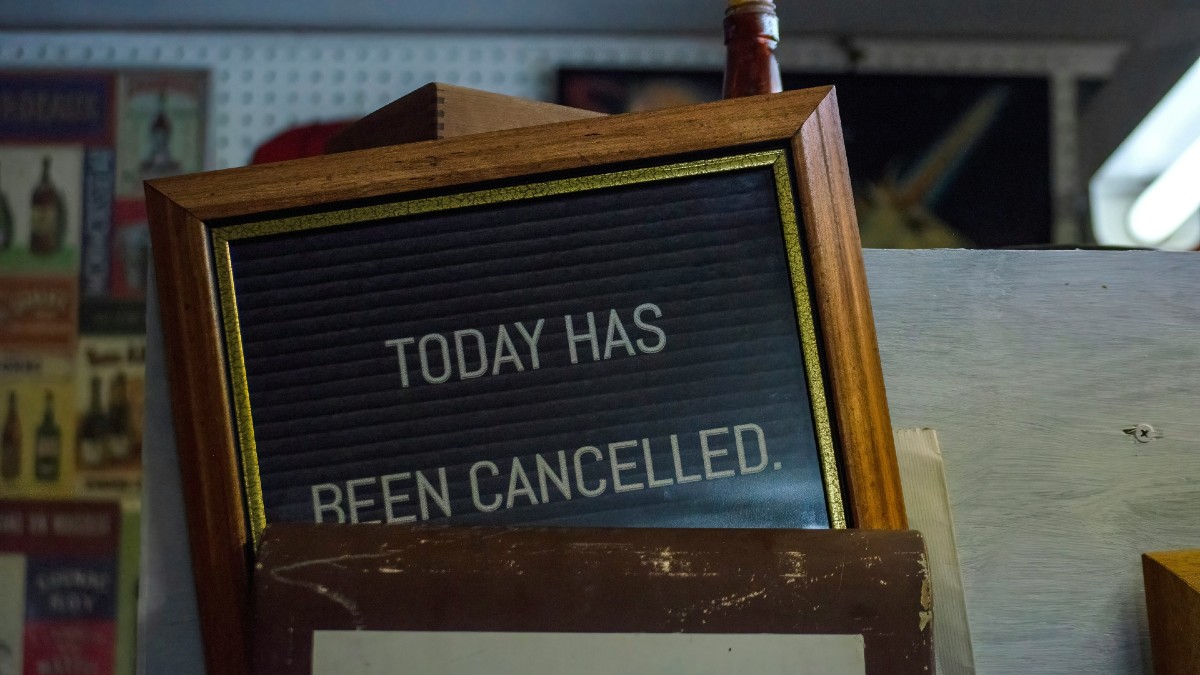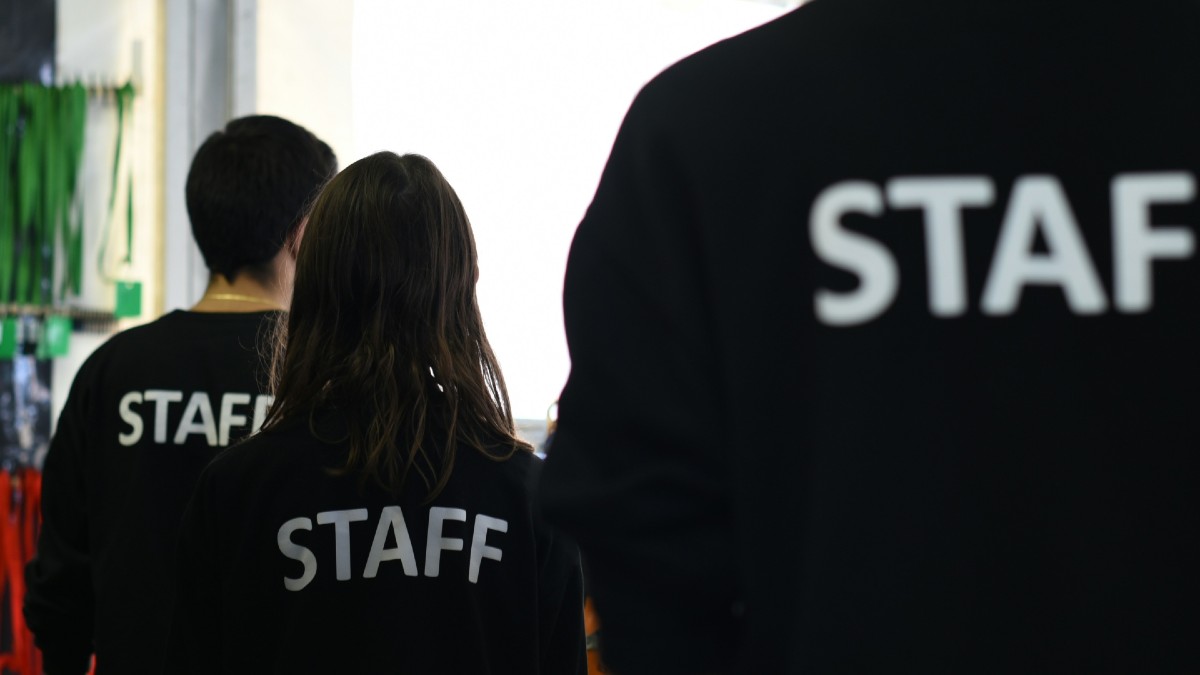
Written by: Cara Tirona
January 8, 2025
As we start 2025, event planners are gearing up for a year filled with exciting opportunities to create memorable and impactful experiences. Whether you're planning a corporate event, product launch, or team-building activity, effective event planning is key to success.
This comprehensive guide to event planning in 2025 will provide you with the tools and strategies needed to plan your first event of the year with confidence. From understanding the latest trends to ensuring that every detail is accounted for, we’ll walk you through the essentials of successful event planning in 2025.
2025 Event Planning Guide: Laying the Foundation for Success
The foundation of any great event starts with clear planning and organisation. In 2025, the event planning landscape is evolving, with new trends, technologies, and strategies to keep in mind. Here’s what you need to know to get started.
Setting Clear Event Objectives
Before diving into the logistics of your event, it’s essential to define your goals. What do you hope to achieve? Whether it’s increasing brand awareness, launching a new product, or fostering team collaboration, having clear and measurable objectives will guide every aspect of your planning. Consider using the SMART criteria—ensuring your goals are Specific, Measurable, Achievable, Relevant, and Time-bound.
Budgeting Wisely
Creating an event budget is a crucial step in the planning process. It not only helps you allocate resources but also sets boundaries for your event. In 2025, budgets should account for inflation, increasing venue costs, and evolving vendor services. Here are some key components to include in your budget:
Venue Rental: Costs associated with the location of your event.
Catering: Food and beverage expenses depending on the type of event.
Technology: Consider audiovisual equipment and any streaming or virtual engagement costs.
Marketing and Promotion: Allocate funds for promotional materials and advertising.

Choosing the Right Venue
Location can make or break your event. When selecting a venue, consider factors such as capacity, accessibility, and ambience that align with your event goals and event type. In addition to these elements, keep the following factors in mind to ensure you choose the ideal venue for your first event of 2025:
Capacity and Layout
Evaluate the maximum capacity of the venue and how it aligns with your expected attendance. An overcrowded space can create discomfort and hinder engagement, whereas a venue that is too large may result in a disconnection among guests. Consider the layout options available—are there breakout rooms for workshops, or an open area conducive to networking? The design should facilitate the event flow and enhance participant interaction.
Accessibility
In 2025, inclusivity is more important than ever. Make sure the venue is physically accessible for individuals with disabilities and easily reachable via public transportation. Evaluate the availability of parking for those who may be driving. Additionally, consider amenities such as restrooms and elevators that cater to all guests, ensuring a welcoming environment for everyone.
Ambience and Facilities
The atmosphere of the venue can greatly influence your event's tone. Assess the décor, lighting, and overall ambience to determine if they align with your brand identity and the message you wish to convey. Are you looking for a sleek, modern space or something more traditional?
Besides aesthetics, check for essential facilities like high-speed internet, audiovisual equipment, and reliable technical support. These resources can significantly enhance your event experience, ensuring that presentations and performances run smoothly. If you plan to incorporate multimedia elements, confirm that the venue is equipped with the necessary technology and that staff members are available to assist if technical issues arise.
Successful Event Tips 2025: What to Prioritise
While every event is unique, certain strategies ensure success across the board. Implement these successful event tips for 2025 to make sure your event runs smoothly and impresses your attendees. Check out these essential event-planning tips:
Focus on Sustainability
Sustainability will continue to be a priority in 2025. Choose eco-friendly materials, opt for digital invitations, and select venues that adhere to sustainable practices. Not only will this appeal to environmentally conscious attendees, but it will also reduce your event's carbon footprint.

Embrace Local Sourcing
One effective way to enhance sustainability at your event is by embracing local sourcing. This approach involves partnering with local catering services, artisans, and vendors to minimise transportation emissions and support the local economy. By showcasing local cuisine and products, you'll not only reduce your carbon footprint but also offer participants a taste of the area’s culture. Additionally, when working with local suppliers, it's easier to verify their sustainability practices, ensuring that your event aligns with eco-friendly values.
Leverage Technology for Engagement
Technology is your ally in planning and executing engaging events. From event apps to live polling and interactive booths, utilise tech tools to keep attendees engaged throughout the event. Virtual reality (VR) and augmented reality (AR) experiences can also create memorable moments for participants. Immersive experiences can captivate your audience, offering them a chance to interact with your event content in ways that transcend traditional formats.
Personalise the Attendee Experience
Using technology, you can personalise the experience of your attendees from the moment they register. From customisable event agendas to one-on-one networking opportunities facilitated by apps, create pathways for participants to tailor their experiences. For example, an event app can allow attendees to select specific sessions they’re interested in, enabling organisers to send tailored notifications and reminders that enhance engagement and ensure no one misses the highlights of the event.
Attendee experience will be a top priority in 2025. From the moment they register to post-event follow-ups, ensuring a smooth and engaging experience is essential. Consider offering personalised name badges, interactive event apps, and easy-to-navigate spaces.
Utilise Data-Driven Insights
In 2025, data is your best friend when planning future events. Analyse data from previous events to identify what worked well and areas that need improvement. Post-event surveys, industry insights and attendee feedback play a crucial role in this process. By collecting quantitative and qualitative data about attendee experiences, engagement levels, and overall satisfaction, you can pinpoint specific aspects that resonated with your audience and those that fell short. Use tools that provide real-time data on attendee engagement during the event to make on-the-fly adjustments if necessary.

Adapt to Flexible Timelines
In today's fast-paced environment, flexibility is no longer a luxury but a necessity in event planning. Planning in 2025 requires flexibility. Unexpected changes, from fluctuating guest numbers to vendor issues, can arise. Build a buffer into your timeline and have backup options ready. Your event schedule should be adaptable, allowing you to pivot as needed without sacrificing the quality of the event.
Develop Contingency Plans
While you can’t predict every potential issue, developing contingency plans can significantly reduce stress during the event. Create a list of potential challenges, such as bad weather, key speakers cancelling, or technical difficulties, and outline proactive measures for each scenario. For instance, if you're hosting an outdoor event, have an indoor venue on standby to accommodate guests if needed. This preparatory work allows for swift decision-making and ensures your event can proceed smoothly, regardless of unexpected hurdles.
Maintain Open Lines of Communication
Fostering clear communication channels among your team, vendors, and attendees can help mitigate problems before they escalate. Establish a dedicated communication platform, such as a group chat or project management tool, where team members can share updates in real time. This promotes quick adjustments and ensures everyone is on the same page, particularly when facing last-minute changes.
Effective Event Marketing Strategy
A successful event not only relies on meticulous planning but also hinges significantly on an effective marketing strategy to generate interest and drive attendance. Here are essential components to help you craft an impactful marketing plan for your event in 2025.
Define Your Target Audience
Understanding your audience is the cornerstone of any marketing strategy. Identify who you want to attract to your event—be it industry professionals, potential clients, or enthusiasts—and tailor your messaging accordingly. Create detailed buyer personas to map out their interests, pain points, and preferred communication channels. This targeted approach ensures that your marketing efforts resonate and maximise engagement.
Leverage Social Media Platforms
In today’s digital landscape, social media platforms serve as powerful tools for promoting your event. They allow you to reach a larger audience while also fostering community engagement. Utilise social media channels such as Facebook, Instagram, Twitter, and LinkedIn to create buzz around your event.

Corporate Event Planning Checklist: Your Go-To for Event Planning
To ensure a smooth and successful corporate event, following a structured checklist is essential. This outlined approach helps in managing various aspects, thereby reducing stress and allowing for a more enjoyable planning process. Here’s a detailed checklist to guide you through each phase of corporate event planning.
Pre-Event Checklist
Before your event, a comprehensive pre-event checklist can help you stay organised and ensure that no detail is overlooked. Here are the crucial elements to consider:
- Define the event purpose and audience
- Set a clear budget
- Research and book your venue
- Finalise speakers, performers, or key participants
- Send out invites and begin marketing your event
- Create a timeline to track deadlines for tasks and milestones
- Coordinate transportation and accommodation for guests if necessary
- Organise catering options, including dietary restrictions
- Arrange AV equipment and technical support for event programs
- Secure necessary permits and insurance for the event
- Prepare event materials, such as agendas, brochures, and nametags
- Rehearse the event flow and logistics with the team
During-Event Checklist
The day of your event is crucial for ensuring everything runs smoothly and your attendees have a memorable experience. Here’s a checklist to help you manage key tasks during the event:
- Conduct a final walkthrough of the venue
- Confirm that all vendors and speakers are on-site and ready
- Set up the attendee registration desk and check-in process
- Have staff or volunteers in place for guest support
- Arrive early to ensure the venue is set up according to the plan.
- Conduct a final check of the AV equipment to ensure everything is operational.
- Confirm that seating arrangements are in place and decorations are as envisioned.
- Set up a welcoming registration table with nametags and materials.
- Facilitate an engaging opening session to set the tone for the event
- Monitor the schedule closely to ensure sessions and activities start and end on time
- Be prepared for emergencies or unexpected situations with a contingency plan
- Provide refreshments and breaks as planned to keep energy levels up
- Encourage interaction and networking among attendees throughout the event
- Regularly check in with speakers and vendors to address any last-minute needs
- Use social media to provide live updates and engage with attendees in real-time
- Gather feedback through informal conversations or scheduled surveys
Post-Event Checklist
After the event concludes, it's important to focus on follow-up activities to assess its success and gather insights for future events. A post-event checklist will help you evaluate the experience and maintain relationships with participants. Key tasks include:
- Send out thank-you notes to speakers, vendors, and key participants
- Compile feedback from attendees through surveys or direct communication
- Analyse the event against KPIs (Key Performance Indicators) like attendance, engagement, and budget adherence
- Conduct a debrief meeting with your team to discuss successes and areas for improvement
- Share an event recap on social media along with photos and highlights
- Document lessons learned and recommendations for future events
Conclusion
As you embark on event planning in 2025, having the right tools, strategies, and knowledge will make all the difference. From creating a clear plan to leveraging the latest technologies and trends, the key to a successful event lies in the details.
Looking for the perfect venue to bring your event vision to life? With VenueNow's advanced search filters and free venue-finding service, you can easily find the ideal venue for your 2025 event. Get started today on VenueNow and let us help make your event a success!
Looking for an event venue to hire?
VenueNow has you covered with over 2,000 venues across Australia ranging from large event spaces to small meeting rooms. Find your perfect venue for hire faster than anywhere else.
Follow us on social media to stay up to date with the latest news
Customers
Want to get in contact?
Call our support team on 1300 647 488 during business hours AEST.
Follow Us
© Copyright VenueNow 2026 | SPARE GROUP PTY LTD | ABN 22 607 830 302











